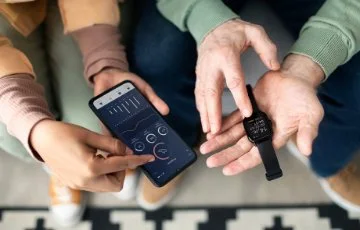Rise
Supported accommodation and technology
Supported accommodation is designed to promote independence and improve community access . Assistive technology can play a vital role in achieving these goals.
In this blog, we explore the various types of technology available and the roles each can play in enhancing your quality of life and helping you get more out of your supported accommodation.
Technology to promote independence
1. Smart home devices
Voice-activated assistants, automated lighting, and smart appliances make it easier to tailor your environment , regardless of your mobility.
For example, some smart home devices empower you to turn on lights, adjust the temperature, or even play music, all via voice commands or from a smart device. In a supported accommodation setting, this results in greater independence, enabling you to design your environment to suit your specific needs.
2. Wearable health trackers
Wearable technology, like smartwatches or fitness bands, can help you monitor your wellbeing in real-time.
From tracking heart rate to sending medication reminders, these devices encourage healthy habits and help you identify changes in your vital signs . They can also provide valuable information that support workers and health professionals can use to tailor your support services. Most importantly, they empower you to take an active role in managing your own health .
3. Mobility and transportation aids
Getting safely from point A to point B is a big part of living independently.
Mobility assistance devices, such as powered wheelchairs and mobility scooters, can help you move around your home and the community with confidence , reducing your reliance on others for transportation. Similarly, vehicle modifications and wheelchair lifts can make motor vehicles more accessible and easier to use for both passengers and drivers with mobility needs.
Access to this kind of mobility technology opens up more opportunities to engage with the community, build friendships, and manage employment commitments.
4. Assistive technology for persons with disabilities
Assistive technology covers a wide range of tools designed to support communication and independence . This can include speech-to-text software, assistive communication devices, adaptive keyboards, and eye-gaze devices.
Everyone’s needs are different. By tailoring your technological toolbox to your specific needs, you can access more opportunities to learn, engage and communicate.
Working out what's right for you
When you’re a resident of Rise supported accommodation , you gain access to a dedicated team of support workers. Together, we’ll help you identify opportunities to gain independence through technology.
We can also support you in preparing and lodging a request with the NDIS for assistive technology funding.
If you’d like to learn more about supported accommodation, we’re here to help . Get in contact with our team today.
Contact us today.
We're here to support you.
8:00am - 4:00pm
across Perth










